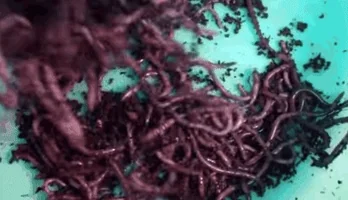Scientists find recipe for greener garden waste disposal
By BEV BETKOWSKI, University of
Alberta
 Scientists have developed a recipe
that addresses a growing need for sustainable disposal of urban garden waste in
China and could also be useful in North America.
Scientists have developed a recipe
that addresses a growing need for sustainable disposal of urban garden waste in
China and could also be useful in North America.
In Beijing, where the research was
based, more than 2.3 million tonnes of leaves and clippings from trees, grass
and bushes are shipped annually to landfills or burned, which takes an
environmental toll, said U of A soil scientist and study co-author Scott Chang.
“While garden waste itself isn’t a
form of pollution, different ways of dealing with it have implications,” he
explained.
The formula uses cattle manure and
crop leftovers like straw and wheat bran used to grow mushrooms—a diet staple
in China.
Composting the waste—feeding it to
earthworms to convert into a nutrient-rich soil conditioner—is more
environmentally friendly, but poses a challenge for the wrigglers because they
have difficulty feeding on lignin, a hard-to-digest organic compound in the
plant matter.
To make it easier, Chang and researchers from Beijing Forestry University experimented with adding varying amounts of manure and mushroom crop materials to improve the digestibility of the garden waste for the worms.
Both substances contain high amounts
of carbon that is easily broken down by the worm’s gut microbes. They also add
extra nutrients to the resulting compost.
The worms thrived, showing increased
survival rates, size, and juvenile and cocoon numbers.
“All of this indicates how happy the
earthworms were,” Chang said.
The additives also sped up the
composting process by 80 per cent.
“This way, the large amount of
garden waste material can be dealt with quickly, reducing the need for storage
and reducing the likelihood of sending it to landfills,” explained Chang.
The study’s findings are now being
tested by a Beijing company that produces agricultural compost, as well as
earthworms used to produce protein powder for human consumption.
A similar compost formula would need
tweaking for North American markets depending on the type and supply of manure
and other materials available, but could be useful, Chang believes.
“We now know that when dealing with
waste that has high lignin content, adding easily degradable material will help
worms in the composting process. We can borrow some ideas from this study, and
it has potential implications for how we might better compost our plant waste
here.”
The discovery adds to the
ever-evolving science underpinning composting practices, Chang added.
“Every waste material is different,
so we need to always be developing new methods.”